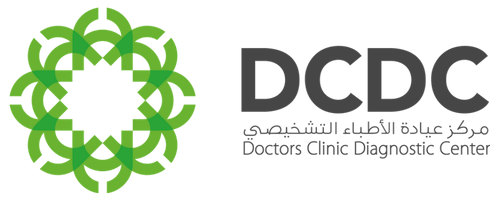Chronic Kidney Disease (CKD) is a long-term condition where the kidneys gradually lose their ability to function properly. Often referred to as the “silent disease,” CKD can develop without noticeable symptoms until it reaches an advanced stage. Early detection is crucial for effective management and to slow its progression. In this article, we’ll explore the top signs of chronic kidney disease, explain their implications, and offer insights on how to address them.
What Is Chronic Kidney Disease (CKD)?
Chronic Kidney Disease is a progressive decline in kidney function that occurs over months or years. Healthy kidneys perform essential tasks such as filtering waste, balancing electrolytes, and maintaining blood pressure. When they begin to fail, these processes are disrupted, leading to significant health risks.
Key Causes of CKD
- Diabetes: High blood sugar levels can damage the delicate filters in the kidneys.
- Hypertension (High Blood Pressure): Persistent high blood pressure can weaken blood vessels in the kidneys.
- Family History: A genetic predisposition may increase your risk.
- Autoimmune Disorders: Conditions like lupus can affect kidney function.
Understanding the causes helps individuals at risk to be more vigilant about early signs.
Why Early Detection Matters
The kidneys have a remarkable ability to compensate for damage, meaning symptoms may not appear until substantial harm has occurred. However, catching CKD early can:
- Delay progression.
- Reduce the risk of complications like cardiovascular disease.
- Improve quality of life through timely treatment.
Top Signs of Chronic Kidney Disease
1. Fatigue and Weakness
Feeling constantly tired or weak is one of the earliest and most common signs of CKD. This occurs due to:
- Anemia: Diseased kidneys fail to produce enough erythropoietin, a hormone that stimulates red blood cell production.
- Toxin Buildup: Waste products accumulating in the blood can sap your energy.
2. Swelling (Edema)
When the kidneys can’t remove excess fluid and sodium efficiently, it leads to swelling, especially in the:
- Feet and Ankles
- Hands
- Face
This condition may also indicate protein leakage into the urine, another hallmark of kidney dysfunction.
3. Changes in Urination
Altered urination patterns are a red flag for kidney issues. Watch out for:
- Increased Urination: Particularly at night (nocturia).
- Foamy Urine: A sign of protein leakage.
- Dark or Blood-Tinged Urine: Indicating potential damage to kidney tissues.
- Decreased Output: Suggesting impaired filtration ability.
4. Persistent Back or Flank Pain
Pain in the lower back or sides of the body could indicate:
- Kidney Infections: Like pyelonephritis.
- Polycystic Kidney Disease: A genetic condition where cysts grow in the kidneys.
5. High Blood Pressure
Since the kidneys regulate blood pressure, malfunctioning kidneys often result in hypertension, creating a vicious cycle of further damage.
6. Nausea and Vomiting
An accumulation of waste in the bloodstream can affect the digestive system, leading to feelings of nausea, vomiting, or loss of appetite.
7. Dry, Itchy Skin
Kidney problems can result in imbalances of minerals and nutrients. In severe cases, a buildup of toxins causes uremic itching.
8. Shortness of Breath
Fluid retention in the lungs or anemia caused by CKD can make breathing difficult, particularly after minimal exertion.
9. Metallic Taste in Mouth
When waste products like urea build up in the blood, they can cause a metallic taste in the mouth or even bad breath (uremic fetor).
10. Difficulty Concentrating
Cognitive issues, such as memory problems or difficulty focusing, are common due to reduced oxygen delivery to the brain and toxin buildup in the bloodstream.
How CKD is Diagnosed
If you suspect CKD based on these signs, consult a healthcare professional. Diagnosis typically involves:
- Blood Tests: Checking for elevated creatinine and blood urea nitrogen (BUN) levels.
- Urine Tests: Detecting protein or blood in the urine.
- Imaging Tests: Ultrasound or CT scans to assess kidney structure.
- Biopsy: In some cases, a small sample of kidney tissue may be analyzed.
Stages of Chronic Kidney Disease
CKD is classified into five stages based on the glomerular filtration rate (GFR), a measure of kidney function:
- Stage 1: Mild damage with normal or high GFR (≥90).
- Stage 2: Mild reduction in GFR (60-89).
- Stage 3: Moderate reduction in GFR (30-59).
- Stage 4: Severe reduction in GFR (15-29).
- Stage 5 (End-Stage Renal Disease): GFR <15, requiring dialysis or a transplant.
Understanding the stage helps tailor treatment plans.
How to Manage CKD
Lifestyle Changes
- Dietary Adjustments: Reduce salt, potassium, and protein intake as advised by a dietitian.
- Regular Exercise: Helps control blood pressure and blood sugar levels.
- Avoid Smoking and Alcohol: These substances accelerate kidney damage.
Medications
- Blood Pressure Medications: ACE inhibitors or ARBs may slow kidney damage.
- Erythropoietin Stimulating Agents (ESAs): Treat anemia.
- Phosphate Binders: Control mineral imbalances.
Monitoring
Regular check-ups are vital to track kidney function and adjust treatment.
When to Seek Immediate Help
Certain symptoms warrant urgent medical attention:
- Sudden Onset of Severe Symptoms: Such as swelling, confusion, or chest pain.
- Signs of Kidney Infection: Including fever, chills, or burning during urination.
Prompt action can prevent further complications.
Prevention Tips
While some risk factors like genetics can’t be controlled, others can. To reduce your risk of CKD:
- Manage Chronic Conditions: Keep diabetes and hypertension in check.
- Stay Hydrated: Drink plenty of water unless advised otherwise by your doctor.
- Regular Screenings: Particularly if you’re at high risk due to family history or existing health conditions.
Conclusion
Chronic Kidney Disease is a serious but manageable condition if caught early. Recognizing the top signs of CKD, such as fatigue, swelling, and changes in urination, can lead to timely intervention and better outcomes. If you experience any of these symptoms or have risk factors, consult a healthcare provider promptly. Taking proactive steps now can protect your kidney health and improve your overall well-being.



